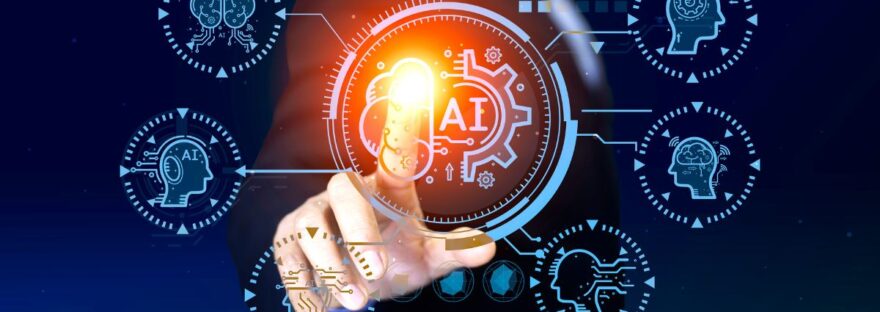In the ever-evolving realm of technology, Artificial Intelligence (AI) innovations stand at the forefront, ushering in a new era of possibilities and reshaping the way we interact with the digital world. This isn’t just about advancements; it’s a narrative of groundbreaking innovations that span industries, redefine capabilities, and propel us into a future where AI is not just a tool but a transformative force.
**1. Machine Learning Advancements: Unleashing Predictive Power Machine learning, a subset of AI, continues to witness remarkable innovations. From improved algorithms to enhanced computational power, these innovations empower machines to learn and adapt from data more efficiently. The impact extends across diverse fields, from personalized recommendations in e-commerce to predicting disease outbreaks based on health data.
The continuous evolution of machine learning algorithms signifies a paradigm shift in how we harness data to drive predictive and proactive solutions.
**2. Natural Language Processing (NLP): Redefining Human-Machine Interaction In the realm of human-machine interaction, AI innovations in Natural Language Processing (NLP) are reshaping communication dynamics. These advancements enable machines to understand, interpret, and generate human-like language. Virtual assistants, chatbots, and language translation tools showcase the practical applications of NLP, facilitating seamless communication between humans and V circle.
The impact of NLP extends beyond convenience, influencing how we interact with technology, access information, and bridge language barriers on a global scale.
**3. AI in Autonomous Vehicles: Revolutionizing Transportation The automotive industry is experiencing a transformative wave with AI innovations in autonomous vehicles. Machine learning algorithms, sensor technologies, and real-time data processing enable cars to navigate, make decisions, and adapt to changing environments autonomously. From self-driving cars to advanced driver-assistance systems, these innovations promise safer, more efficient, and sustainable transportation solutions.
The integration of AI in autonomous vehicles represents a pioneering leap toward a future where transportation is not just connected but also intelligent.
**4. Healthcare Diagnostics and Treatment: Personalized Precision AI innovations in healthcare are revolutionizing diagnostics and treatment. Machine learning algorithms analyze vast datasets, enabling early and accurate detection of diseases. Personalized medicine, guided by AI, tailors treatment plans based on individual genetic makeup, optimizing therapeutic outcomes. The impact extends to robotic surgeries, remote patient monitoring, and drug discovery, ushering in a new era of precision and efficiency in healthcare.
The convergence of AI and healthcare showcases a commitment to personalized, data-driven, and patient-centric approaches.
**5. AI in Creativity: From Art to Music Composition AI is not limited to analytical tasks; it’s also making strides in the realm of creativity. Innovations in generative AI are enabling machines to produce art, compose music, and even write literature. These AI-generated creations challenge traditional notions of creativity and redefine the collaborative potential between human imagination and artificial intelligence.
The intersection of AI and creativity opens new frontiers, sparking discussions about the nature of artistic expression and the role of machines in creative processes.
**6. AI for Climate Change Solutions: Data-Driven Sustainability Addressing global challenges, AI is playing a pivotal role in developing solutions for climate change. Innovations in predictive modeling, data analytics, and satellite imagery analysis assist in monitoring environmental changes, predicting natural disasters, and optimizing resource allocation. From precision agriculture to energy management, AI is a driving force in creating sustainable practices and mitigating the impact of climate change.
The fusion of AI and environmental science underscores the potential for technology to contribute significantly to global sustainability efforts.
Challenges and Considerations: Navigating the AI Landscape Amidst the remarkable AI innovations, challenges and ethical considerations arise. Questions about data privacy, algorithmic bias, and the responsible use of AI demand careful navigation. As AI becomes increasingly ingrained in our daily lives, transparent communication, robust ethical frameworks, and a commitment to responsible development are crucial in ensuring that the positive impact of AI is realized while mitigating potential risks.
Addressing these challenges fosters a responsible AI ecosystem where innovation aligns with ethical considerations.
Conclusion: AI innovations are not merely advancements; they represent a seismic shift in how we perceive and interact with technology. From machine learning advancements to creative expressions, the impact of AI transcends traditional boundaries, shaping industries, and redefining possibilities. Embracing this transformative force promises a future where AI isn’t just a tool but a cornerstone of progress, innovation, and a more connected, intelligent world.

